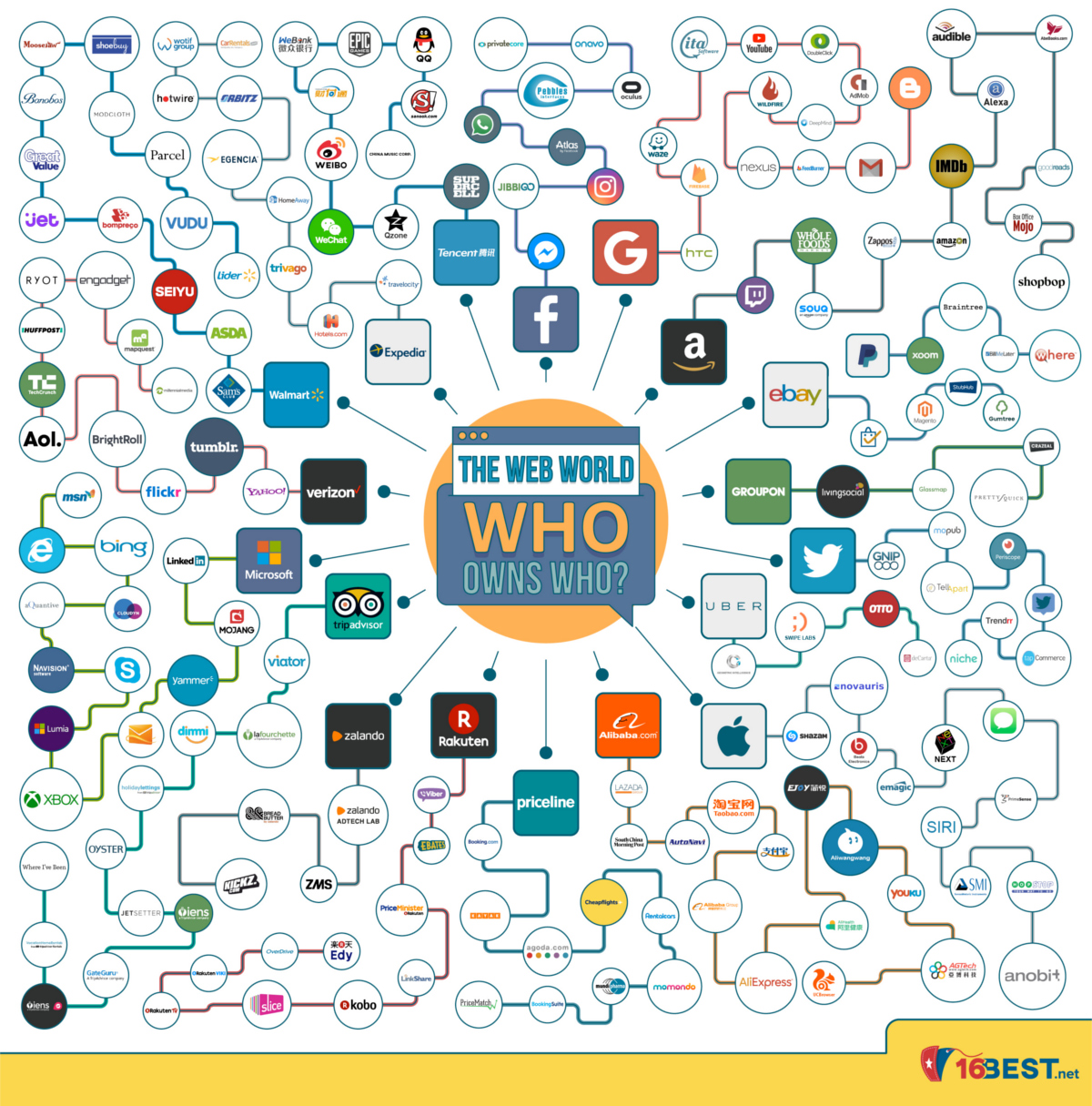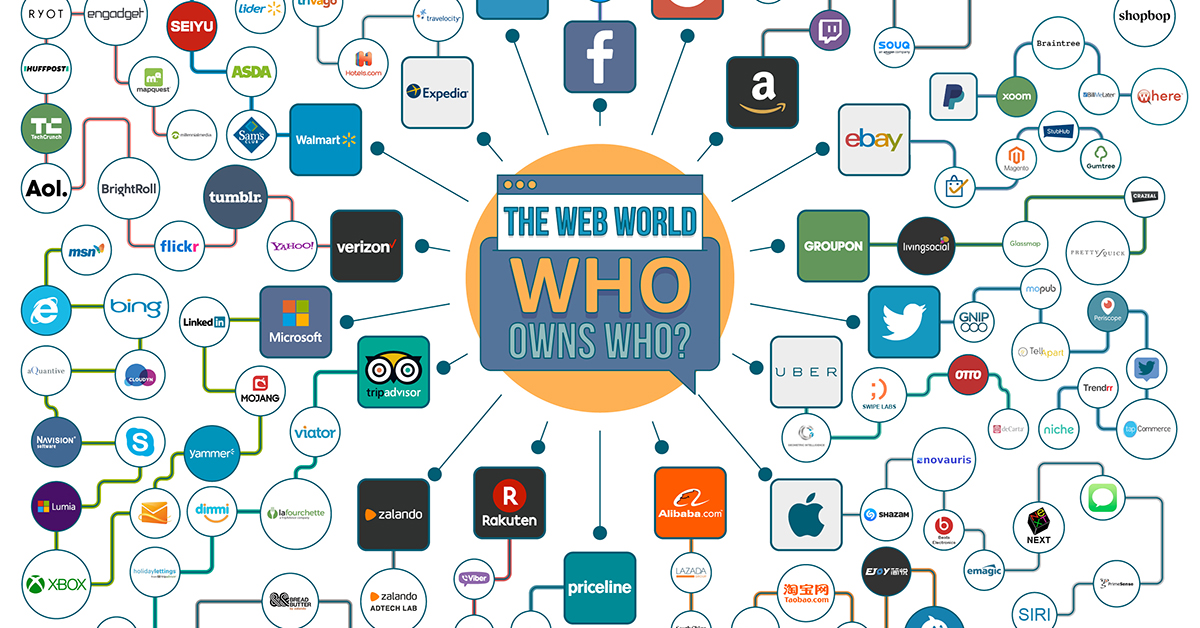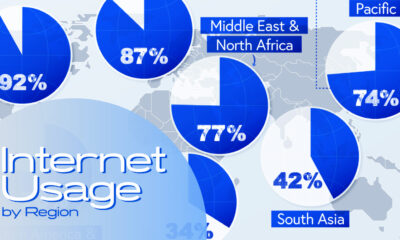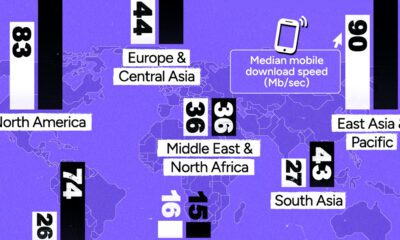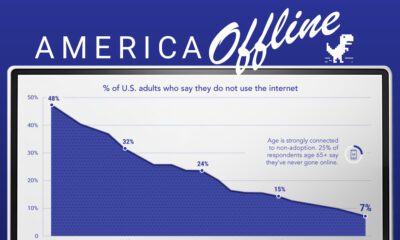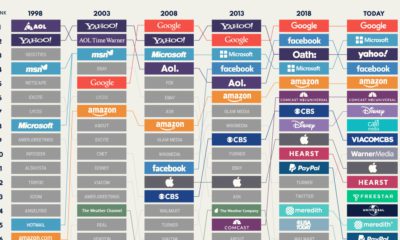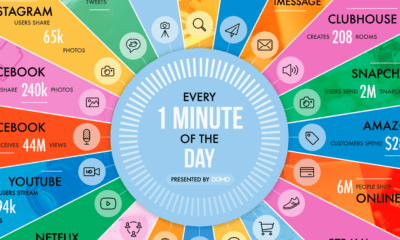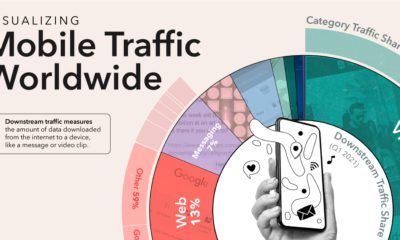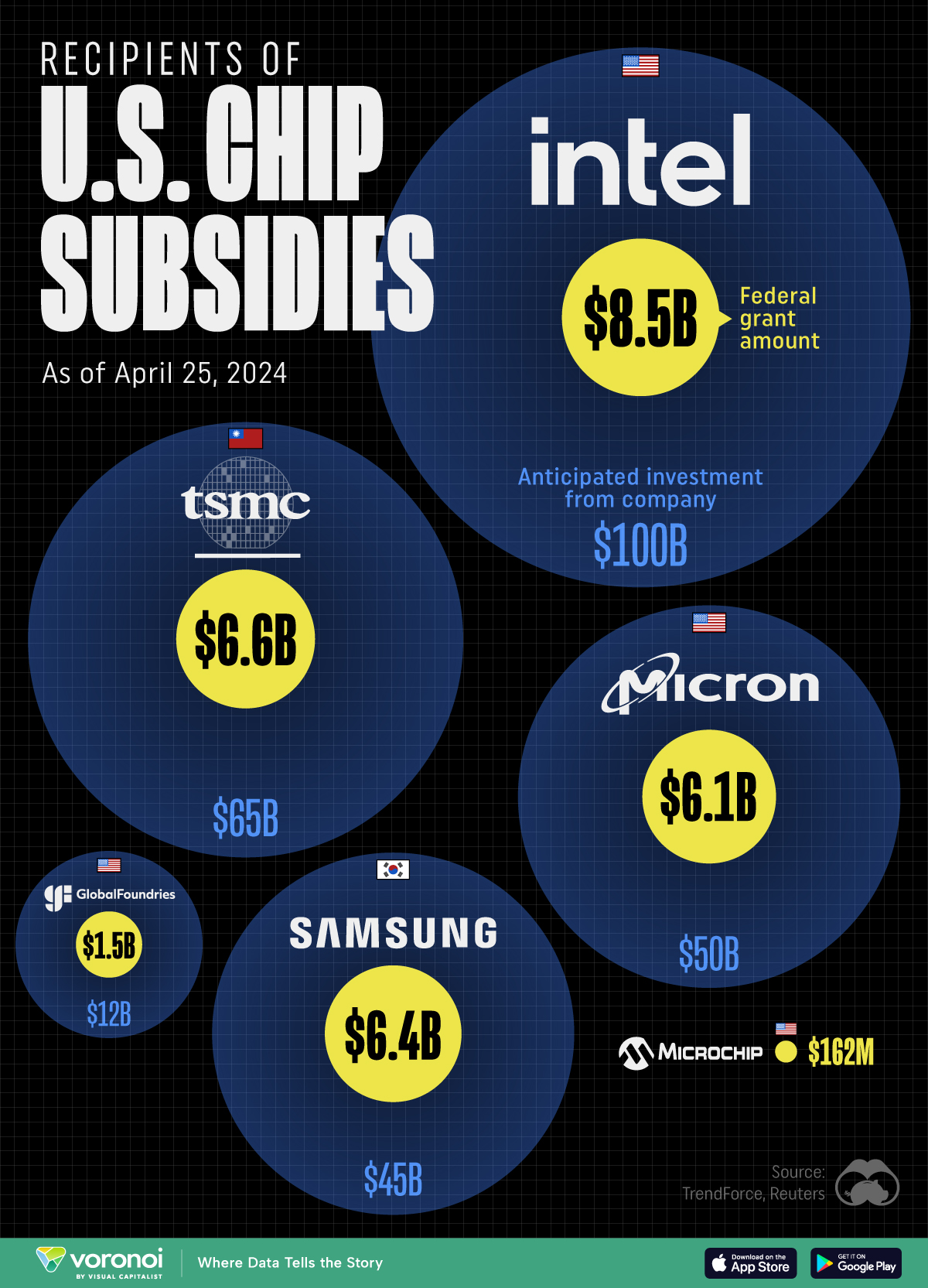Technology
Internet Giants: Who Owns Who on the Web
Internet Giants: Who Owns Who on the Web
View the high resolution version of today’s graphic by clicking here.
In the brick and mortar world, decades of consolidation has led certain conglomerates to wield massive amounts of control in the banking, consumer goods, alcohol, and auto sectors.
And although the internet is incredibly vast in scale and much newer, it’s also heading in a similar direction.
As a result, it’s not unusual to see behemoths like Facebook, Alphabet, and Amazon leveraging their size, networks, and market leading positions to buy up competitors while also making other strategic acquisitions. This ongoing consolidation has created a vast web of subsidiaries, providing each parent organization with additional insurance in maintaining their position at the top of the digital food chain.
The Connected Web
Today’s infographic comes to us from 16Best, and it shows the companies or websites that are owned by the bigger fish.
They fall into two categories, generally:
1. Gobbling Up the Competition
What better way to ensure dominance than to eat up all of the smaller fish that do the same thing you do?
Look at Expedia, a company that owns fellow travel sites Travelocity, Hotels.com, Trivago, Orbitz, Hotwire, and CarRentals.com. Another example is Groupon, a company that bought competitor LivingSocial, as well as Crazeal (originally a local deal site in India).
2. Strategy and Tactics
Whether it is future proofing, apparent synergies, or filling a weakness, this broad category makes up the majority of situations. Here we see the internet giants making strategic acquisitions to ensure future success.
A good example of this is Facebook’s acquisition of Oculus, which allows the social network giant to enter into the VR business – the exact type of new venture that would be nearly impossible to do without help and expertise in a complex technical field.
Correction: A previous version of this graphic listed PayPal as a subsidiary of eBay. PayPal was spun off into a separate publicly traded company in 2015.
Technology
All of the Grants Given by the U.S. CHIPS Act
Intel, TSMC, and more have received billions in subsidies from the U.S. CHIPS Act in 2024.
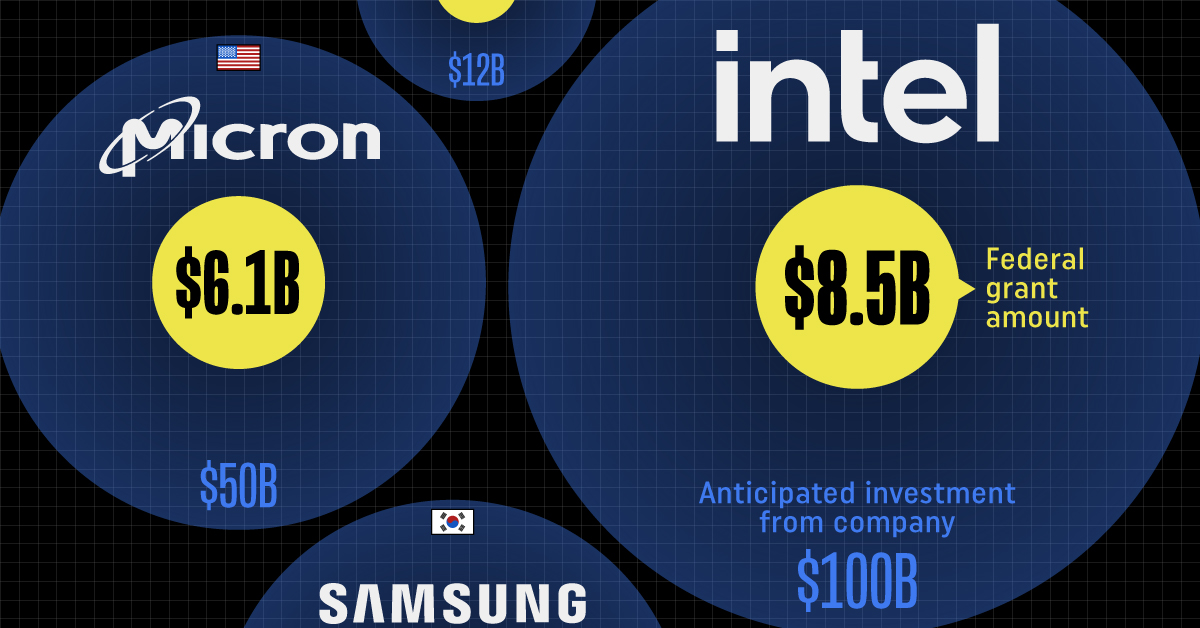
All of the Grants Given by the U.S. CHIPS Act
This was originally posted on our Voronoi app. Download the app for free on iOS or Android and discover incredible data-driven charts from a variety of trusted sources.
This visualization shows which companies are receiving grants from the U.S. CHIPS Act, as of April 25, 2024. The CHIPS Act is a federal statute signed into law by President Joe Biden that authorizes $280 billion in new funding to boost domestic research and manufacturing of semiconductors.
The grant amounts visualized in this graphic are intended to accelerate the production of semiconductor fabrication plants (fabs) across the United States.
Data and Company Highlights
The figures we used to create this graphic were collected from a variety of public news sources. The Semiconductor Industry Association (SIA) also maintains a tracker for CHIPS Act recipients, though at the time of writing it does not have the latest details for Micron.
| Company | Federal Grant Amount | Anticipated Investment From Company |
|---|---|---|
| 🇺🇸 Intel | $8,500,000,000 | $100,000,000,000 |
| 🇹🇼 TSMC | $6,600,000,000 | $65,000,000,000 |
| 🇰🇷 Samsung | $6,400,000,000 | $45,000,000,000 |
| 🇺🇸 Micron | $6,100,000,000 | $50,000,000,000 |
| 🇺🇸 GlobalFoundries | $1,500,000,000 | $12,000,000,000 |
| 🇺🇸 Microchip | $162,000,000 | N/A |
| 🇬🇧 BAE Systems | $35,000,000 | N/A |
BAE Systems was not included in the graphic due to size limitations
Intel’s Massive Plans
Intel is receiving the largest share of the pie, with $8.5 billion in grants (plus an additional $11 billion in government loans). This grant accounts for 22% of the CHIPS Act’s total subsidies for chip production.
From Intel’s side, the company is expected to invest $100 billion to construct new fabs in Arizona and Ohio, while modernizing and/or expanding existing fabs in Oregon and New Mexico. Intel could also claim another $25 billion in credits through the U.S. Treasury Department’s Investment Tax Credit.
TSMC Expands its U.S. Presence
TSMC, the world’s largest semiconductor foundry company, is receiving a hefty $6.6 billion to construct a new chip plant with three fabs in Arizona. The Taiwanese chipmaker is expected to invest $65 billion into the project.
The plant’s first fab will be up and running in the first half of 2025, leveraging 4 nm (nanometer) technology. According to TrendForce, the other fabs will produce chips on more advanced 3 nm and 2 nm processes.
The Latest Grant Goes to Micron
Micron, the only U.S.-based manufacturer of memory chips, is set to receive $6.1 billion in grants to support its plans of investing $50 billion through 2030. This investment will be used to construct new fabs in Idaho and New York.
-
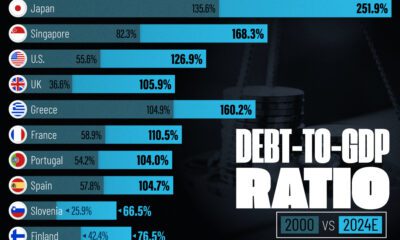
 Debt1 week ago
Debt1 week agoHow Debt-to-GDP Ratios Have Changed Since 2000
-

 Countries2 weeks ago
Countries2 weeks agoPopulation Projections: The World’s 6 Largest Countries in 2075
-

 Markets2 weeks ago
Markets2 weeks agoThe Top 10 States by Real GDP Growth in 2023
-

 Demographics2 weeks ago
Demographics2 weeks agoThe Smallest Gender Wage Gaps in OECD Countries
-

 United States2 weeks ago
United States2 weeks agoWhere U.S. Inflation Hit the Hardest in March 2024
-

 Green2 weeks ago
Green2 weeks agoTop Countries By Forest Growth Since 2001
-

 United States2 weeks ago
United States2 weeks agoRanked: The Largest U.S. Corporations by Number of Employees
-

 Maps2 weeks ago
Maps2 weeks agoThe Largest Earthquakes in the New York Area (1970-2024)

